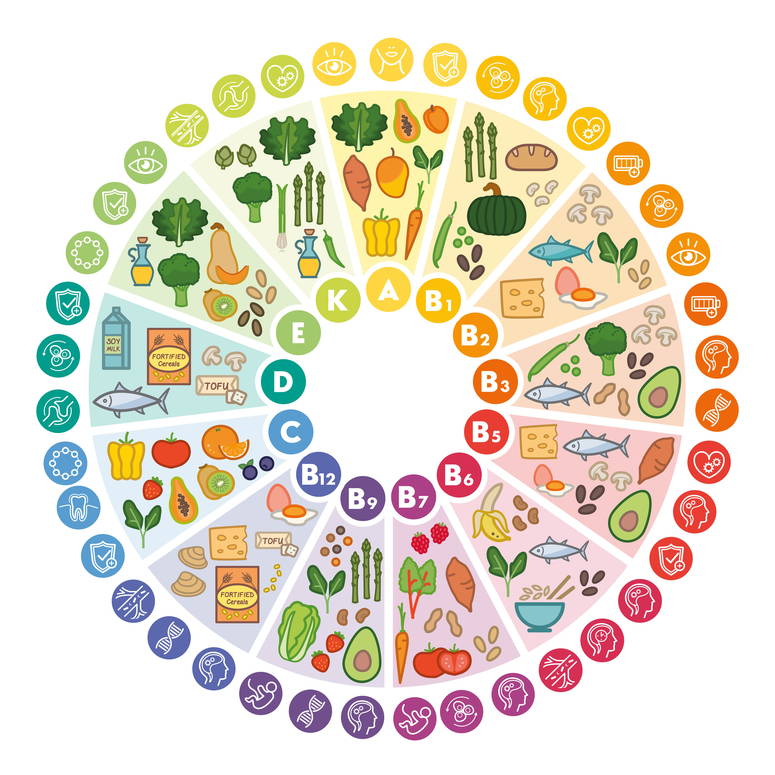We know that Vitamins are essential to good health. For example, supplements like Vitamin A help develop and maintain body tissues, bone and skin, helps vision, nervous system functioning, reproduction, and growth. The B vitamin supplements are key in increasing the production of fats, proteins, and carbohydrates, as well as assisting with metabolism, building red blood cells, and maintaining the protective covering of the nervous system.
Vitamin C supplements help form tissues, cells, bones, teeth, heal wounds and improve the immune system’s performance. Vitamin E supplements protect the outer cell membranes and assisting the immune system in fighting off diseases. Vitamin K helps the body’s clotting in wounded areas.
Mineral supplements also have a broad range of functions. As many as 20 different mineral supplements play significant roles in the body. Supplements called “Micro minerals,” or minerals that the body only needs traces of, can fight off serious illness. These supplements include copper, iodine, chromium, molybdenum, fluorine, tin, zinc, nickel, vanadium, manganese, silicon, iron, and selenium. Minerals that the body needs large amounts of include magnesium, sodium, potassium, chlorine, phosphorus, calcium, and sulphur.

The supplement zinc is responsible for helping metabolize proteins and keep enzymes functioning. Copper is needed by enzymes for metabolizing. Iodine supplements assist the thyroid gland in working properly. Calcium and phosphorus build bones and teeth. Iron delivers oxygen to the body’s cells. Potassium aids muscle contraction, maintains the fluid balance of cells, helps transmit messages through the body’s nerves, and even keeps the kidneys and heart working correctly.
Vitamins and Minerals are very important for our health, never forget it.
© Copyright – Hector Sectzer

















